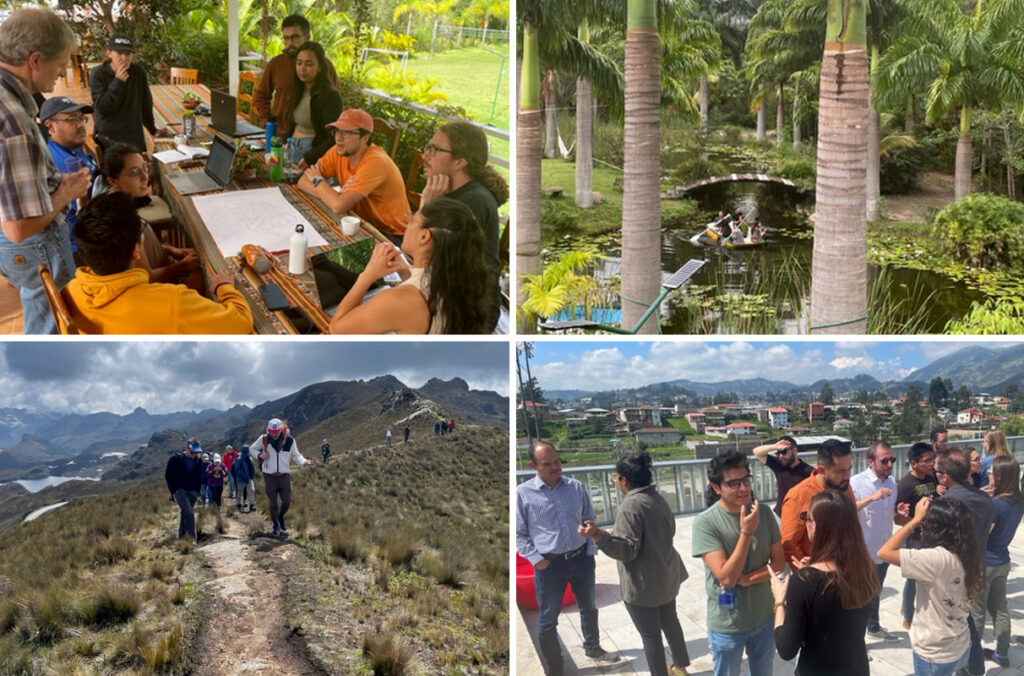As part of a continuing global partnership, Washington State University’s Center for Environmental Research Education and Outreach took students to Ecuador early in 2024 to collaborate with their South American colleagues on water resource issues.
The event is a part of the Partnerships Along the Headwaters of the Americas for Young Scientists (Pathways) Program. Funded by the National Science Foundation’s International Research Experience for Students program, Pathways focuses on climate change effects on water storage and downstream uses that need to be managed.
In the first two years of the program, Pathways students went to Santiago and Frutillar in Chile, hosted by the University of Chile. This year, the Pathways Program traveled to Ecuador, hosted by the University of Cuenca, in the beautiful city of Cuenca.
Twelve Ecuadorian students and two Peruvian students joined 12 U.S.-based Pathways students for a two-week, intense program to understand issues related to Cuenca’s water supply.
WSU professors Alexander Fremier, Julie Padowski, and Jan Boll led the Ecuador summer school, along with Benjamin Warner from the University of New Mexico, and Rolando Célleri and Mario Cordova from the University of Cuenca.
“The interaction amongst U.S. and international students have been inspiring and long-lasting. This program has been one of the more rewarding projects in my career,” Boll said.
The interaction amongst U.S. and international students have been inspiring and long-lasting. This program has been one of the more rewarding projects in my career.”
Jan Boll, professor
WSU’s Center for Environmental Research Education and Outreach
Pathways is an outgrowth of the international Transect of the Americas project, which is also funded by the NSF. Boll, Fremier, and Padowski with more than 20 U.S. and international collaborators are studying the impacts of climate change on water storage systems (often called water towers) in headwater areas in mountain sites along the western Americas from Canada to Patagonia in Chile and Argentina.
Headwaters are linked to downstream areas where human activities depend on a reliable flow of quality water. The research team has adopted the term headwater dependent systems for these downstream areas. Pathways students go to sites in the area to conduct research on headwater dependent systems. This research gives the students time to interact with a variety of foreign mentors at universities and state organizations in Chile, Peru, Costa Rica, Ecuador, and Argentina.
The Pathways Program first prepared all students for the visit to Cuenca with a series of webinars in Fall 2023. During that time, students worked in groups to prepare white papers on water, climate, ecology, urban water supply, and water governance, so the entire team gained disciplinary adequacy. Once in Cuenca, the students reorganized into three interdisciplinary groups and took on topics such as “climate change effects and the 2023 drought”, “land use change effects on water quantity and quality in two headwater basins”, and “y ahora qué?” (And now what?”). In addition to practicing their interdisciplinary skills, students had an amazing cultural experience in Ecuador, and they learned about high mountain wetlands (called Páramo’s), the creativity involved with source water protection for water storage dams, and the history of water development in the region.





